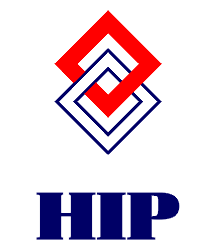
Ivo Sanader is a former Croatian politician who served as Prime Minister of Croatia from 2003 to 2009.

The Croatian Democratic Union is the major conservative, centre-right political party in Croatia. It is one of the two major contemporary political parties in Croatia, along with the centre-left Social Democratic Party (SDP). It is currently the largest party in the Sabor with 61 seats. The HDZ governed Croatia from 1990 before the country gained independence from Yugoslavia until 2000 and, in coalition with junior partners, from 2003 to 2011, and since 2016. The party is a member of the European People's Party (EPP). The HDZ's leader, Andrej Plenković, is the current Prime Minister of Croatia, having taken office following the 2016 parliamentary election.

Mate Granić is a Croatian diplomat and politician who served as Minister of Foreign Affairs in the Government of Croatia from 1993 to 2000.

The Democratic Centre was a Croatian centre-right political party established in 2000 by former members of the Croatian Democratic Union.

Croatian True Revival was a right-wing political party in Croatia. Founded in 2002 as a splinter party of the centre-right Croatian Democratic Union (HDZ), HIP never won any seats in elections, although it briefly had three MPs in the Croatian Parliament in late 2003. Following poor results in the November 2003 parliamentary election, the party fell into obscurity before being formally dissolved in August 2011.

Branimir Glavaš is a Croatian former major general and right-wing politician. He was one of the founders of the Croatian Democratic Union (HDZ) party which was in power in the 1990s and one of its key figures until a split in 2006. In 2009 he was found guilty of war crimes.

Parliamentary elections were held in Croatia on 25 November 2007 and for overseas voters on 24 and 25 November. The campaign officially started on 3 November. The President of Croatia announced elections on 17 October and 14 days were allowed for candidate lists to be submitted.
The Croatian Bloc or the Croatian National Representation was the name held by the wide coalition of Croatian political parties in the Kingdom of Serbs, Croats, and Slovenes from 1921 to 1929's 6th of January Dictatorship and within the Kingdom of Yugoslavia from 1935 to 1941.

The Ninth Government of the Republic of Croatia was the first of two Croatian Government cabinets led by Prime Minister Ivo Sanader. It was announced on 23 December 2003 and its term ended on 12 January 2008. All but two cabinet members came from the ruling Croatian Democratic Union (HDZ) party, following their win in the 2003 parliamentary elections.

Parliamentary elections were held in Croatia on Sunday, 4 December 2011 to elect 151 members to the Croatian Parliament. They were the sixth parliamentary election in Croatia since independence.

The Tenth Government of the Republic of Croatia was the second of two Croatian Government cabinets led by Prime Minister Ivo Sanader. It was announced on 12 January 2008 and its term ended on 6 July 2009, when Jadranka Kosor formed the 11th cabinet following Sanader's surprise resignation. Cabinet members represented parties of the ruling coalition which was formed following the 2007 parliamentary elections:

The Croatian Demochristian Party is a political party in Croatia with the goal that Croatia will become a state with Christian ideals.
Ivić Pašalić is a Croatian politician and former prominent member of the Croatian Democratic Union (HDZ).
Opinion polling for the 2011 Croatian parliamentary election started early after the previous election with polls on individual parties. As electoral coalitions were formed, coalition ratings started to be polled as well. The poll results below are listed by category and ordered in reverse chronological order. Major political events are indicated chronologically between individual polls. Concurrent polling was at the time also done for the 2012 Croatian European Union membership referendum.
Since its founding in 1989, elections within the Croatian Democratic Union were held numerous times.

Croatian Democratic Alliance of Slavonia and Baranja is a regionalist, National conservatism political party in the Eastern Croatian region of Slavonia. Until 2015, the HdSSB was considered right-wing populist.

Zdravka Bušić is a Croatian politician for the right-wing Croatian Democratic Union party.
The Croatian Left has consisted of a broad range of individuals, groups, and political parties who seek egalitarian, economic, social and cultural rights in Croatia. Left wing ideologies came to Croatia in the late 19th century during the Austria-Hungary regime. In 1894, the Social Democratic Party of Croatia and Slavonia was formed. It was the first workers party in Croatia at the time. In the Kingdom of Serbs, Croats and Slovenes the leftist movement grew but it was suppressed by the royal government. In 1920, the Communist Party of Yugoslavia was proclaimed illegal and its sympathizers were brutally persecuted after winning a large number of positions in the local elections. During the 1920s, Stjepan Radić and his Croatian Peasant Party led a centre-left agrarianism and anty-royalist policy. They were the leading Croatian political party at the time. After the assassination of Radić in 1929, the Croatian Peasant Party was taken over by Vlatko Maček who enforced a more conservative and nationalist rhetoric. During the Socialist Yugoslavia era, the League of Communists of Yugoslavia was the only legal party in the country. In 1990, political plurality was restored and a number of left-wing parties emerged with the most notable one being the Social Democratic Party of Croatia.
The Bloc for Croatia is a right-wing to far-right nationalist political party in Croatia.











